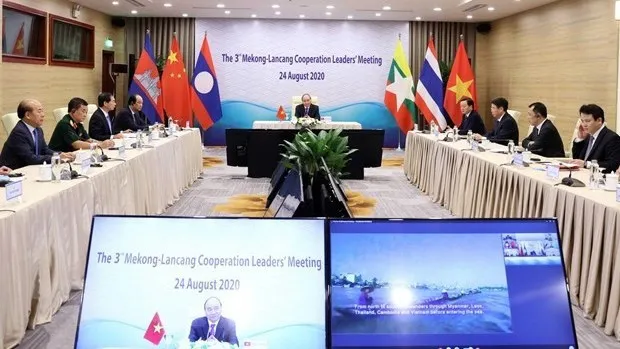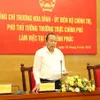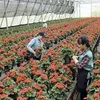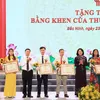Vietnam actively contributes to Mekong – Lancang cooperation: Deputy FM

In an interview on the occasion of the virtual third Mekong-Lancang Cooperation Leaders' Meeting on August 24, Son said Vietnamese ministries and sectors have actively taken part in drafting documents in a constructive and cooperative spirit, for the common interests of the whole region.
At the event, Prime Minister Nguyen Xuan Phuc and senior leaders from other member countries discussed major issues affecting the region’s sustainable development and necessary solutions to related challenges, the Deputy FM stressed.
The meeting focused on reviewing the implementation of the first 5-year cooperation plan in the 2018-2022 period among its six member nations – China, Cambodia, Myanmar, Laos, Thailand and Vietnam, and their future cooperation orientations, he noted.
The leaders appreciated the practical and effective implementation of cooperation in the three key pillars of security and politics, economy and sustainable development, and cultural exchange between the MLC member countries, especially the MLC Plan of Action for 2018-2020, which has benefited people and enterprises.
The close and effective cooperation among the member nations was also shown clearly in the fight against the COVID-19 pandemic in recent times, he said.
The leaders also applauded achievements in the regional cooperation in the last two years, Son said, noting that the countries have implemented more than 300 technical assistance projects across areas, including trade, investment, tourism, agriculture, and water resources management.
A number of specialised cooperation centres such as the Global Centre for Mekong Studies, the Water Resources Cooperation Centre, the Centre for Environmental Cooperation, and the Centre for Agricultural Cooperation, were established and have seen stable operation, he said.
The leaders affirmed their determination to promote cooperation to address environmental and socio-economic challenges facing the countries, through expanding cooperation in the three main pillars and five priority areas, including connectivity, production capacity cooperation, cross-border economic cooperation, agriculture and poverty alleviation, and water resources management.
The highlights that were agreed upon by the leaders at the meeting include strengthening cooperation in public health to respond to the COVID-19 pandemic via joint research activities, policy dialogue and sharing experience in disease prevention and control, improving the capacity of the countries in handling urgent medical problems, and ensuring equal access to vaccines and medicine.
Development of infrastructure, digital economy and hi-tech agriculture, climate change adaptation, environmental management, ensuring stability of production and regional supply chains, and cooperation in education-training and human resources development were also key issues put on table, Son said.
According to Son, the meeting spent a lot of time discussing cooperation in managing water resources in the Mekong River, and the leaders agreed to further strengthen cooperation in managing and using the Mekong River water resources sustainably.
The six countries will organise a periodic MLC Ministerial Meeting on water resources cooperation, promote policy dialogue, share information, data and experience in cross-border water management, build a channel sharing information on water resources, conduct joint studies on Mekong River water resources and collaboration activities on climate change adaptation, hydropower dam safety, and flood and drought management.
The leaders also highly valued the proposal to set up a hydrological data centre and share data sources for the Mekong countries in the context of severe drought.





